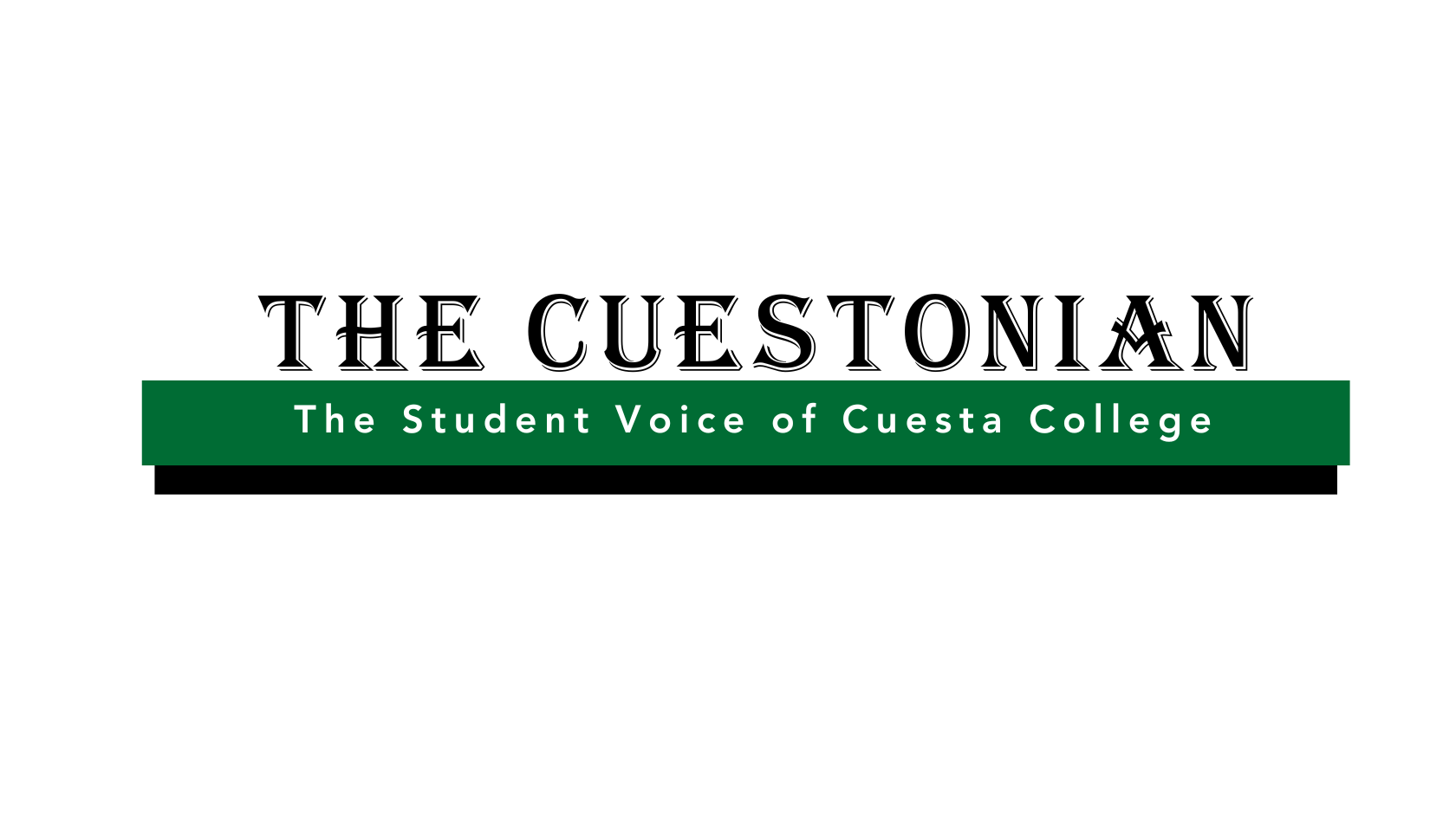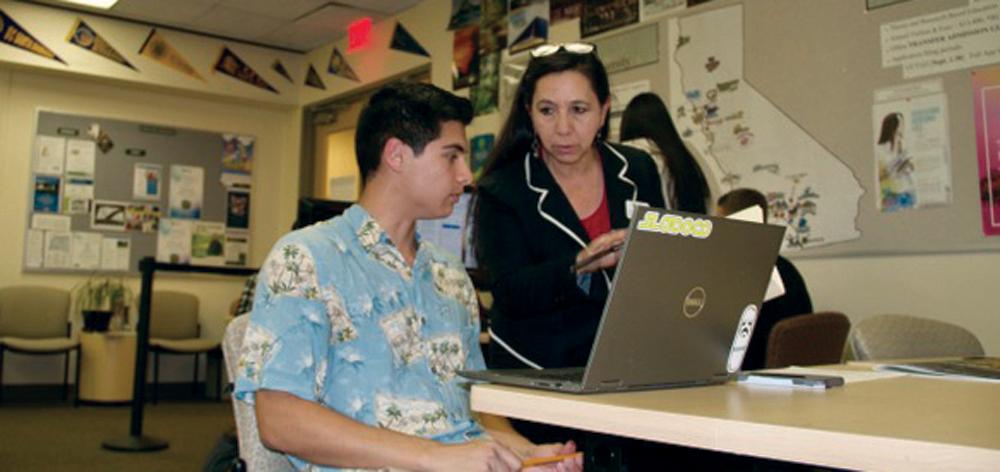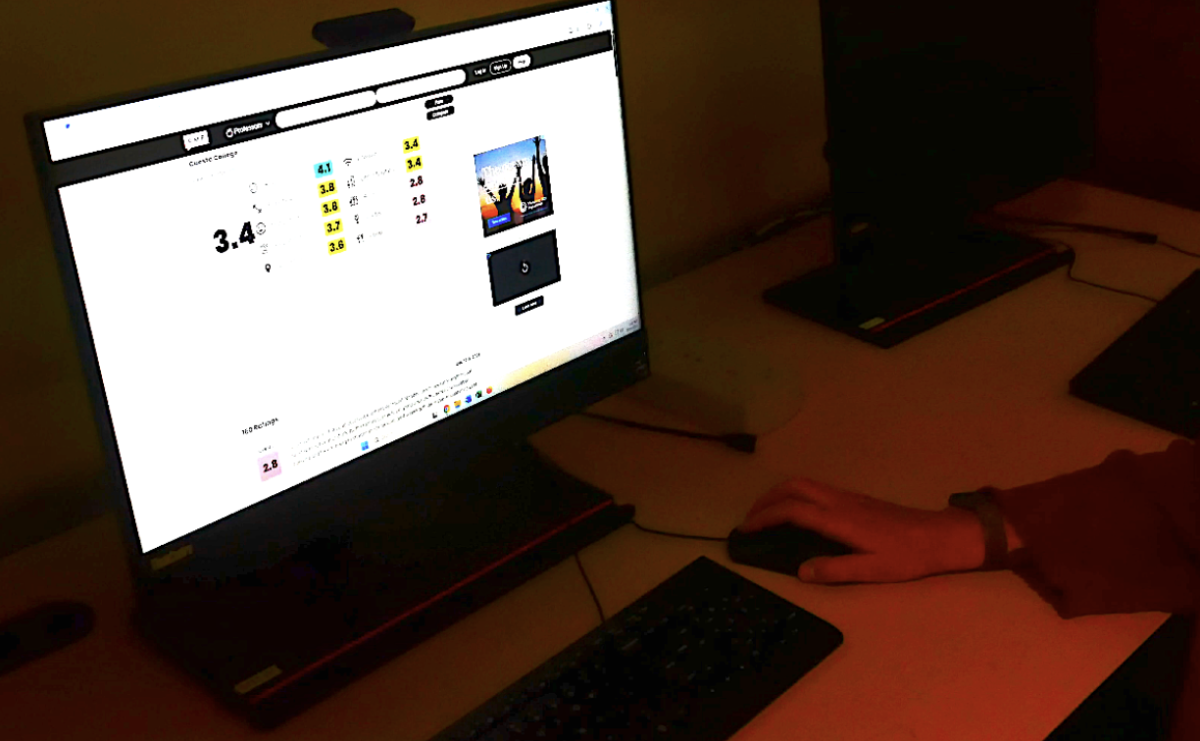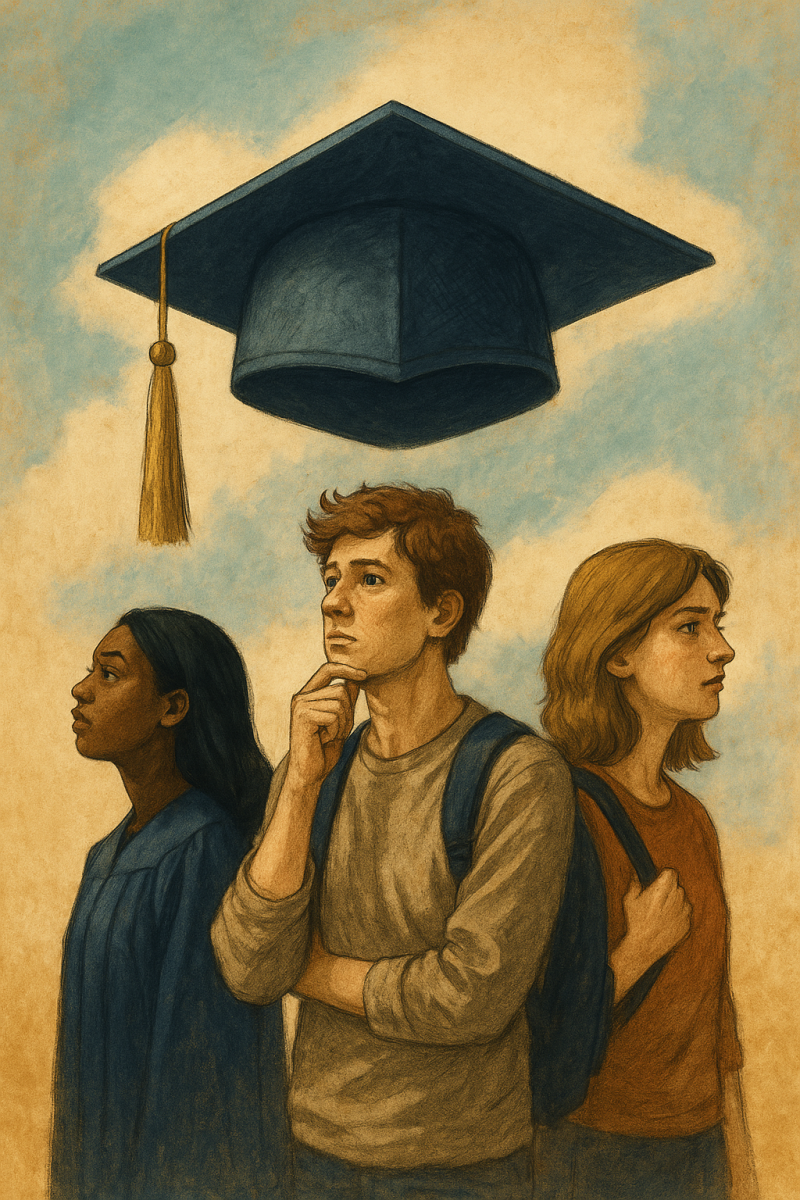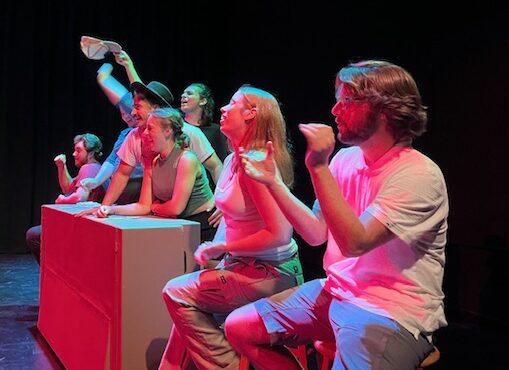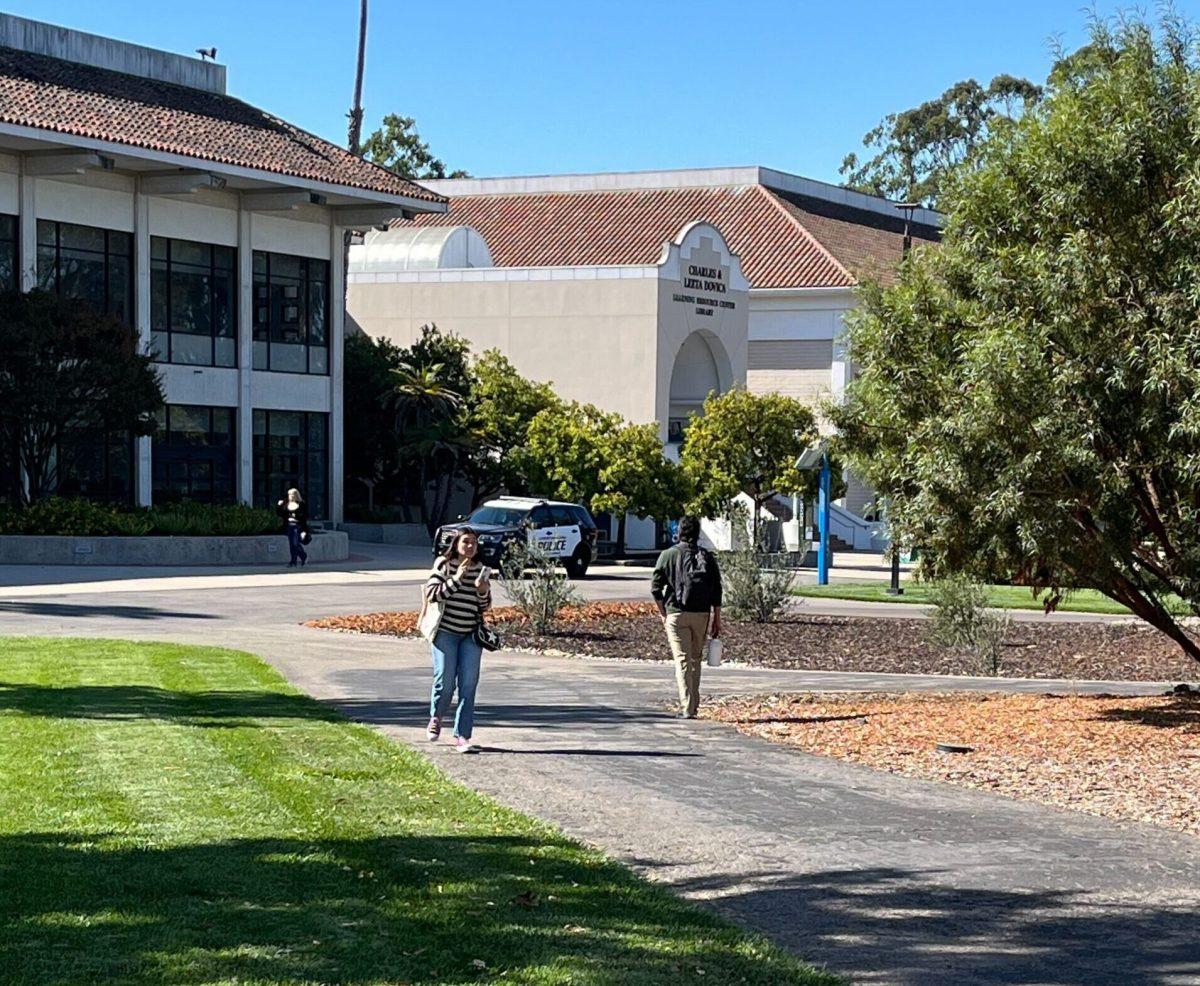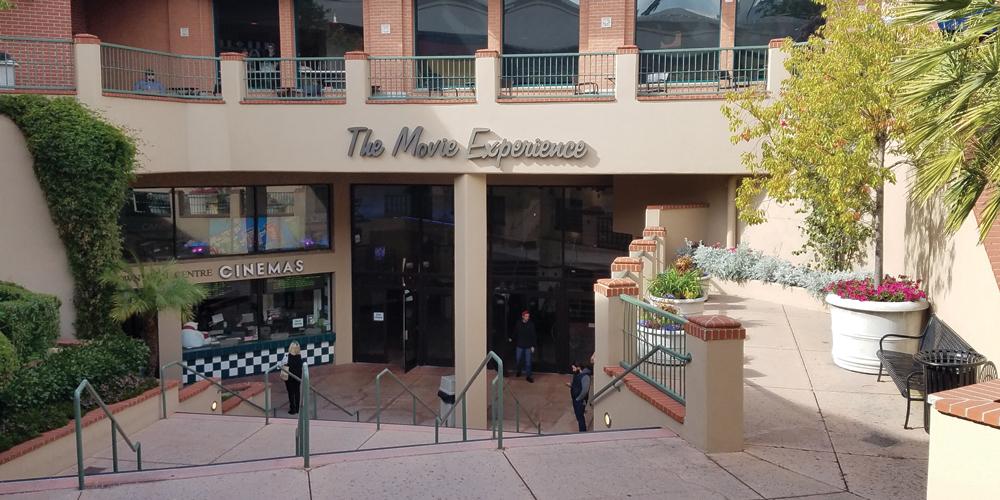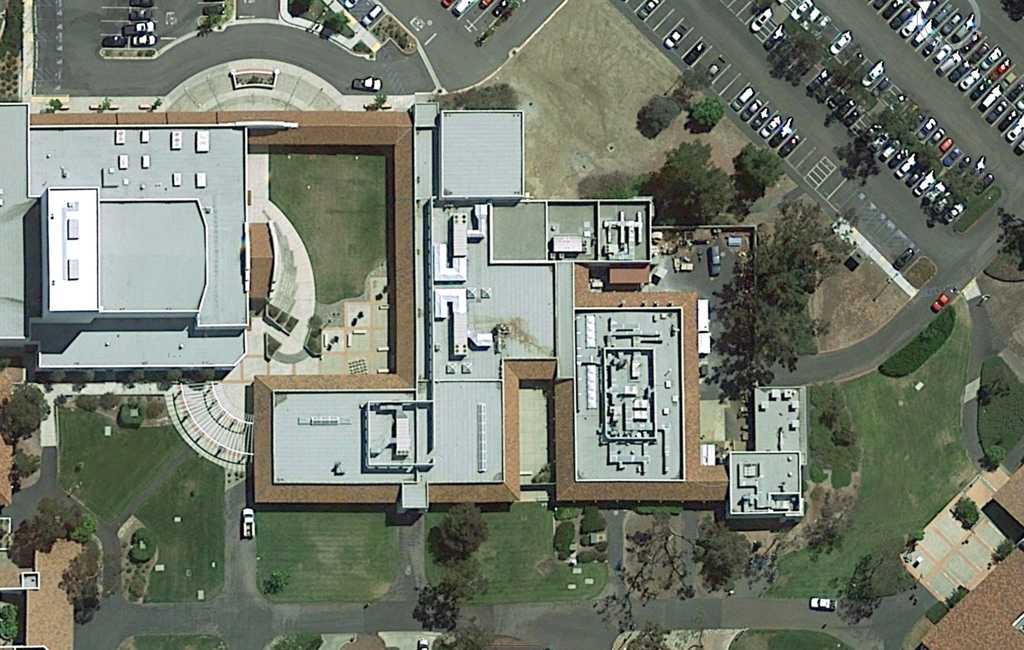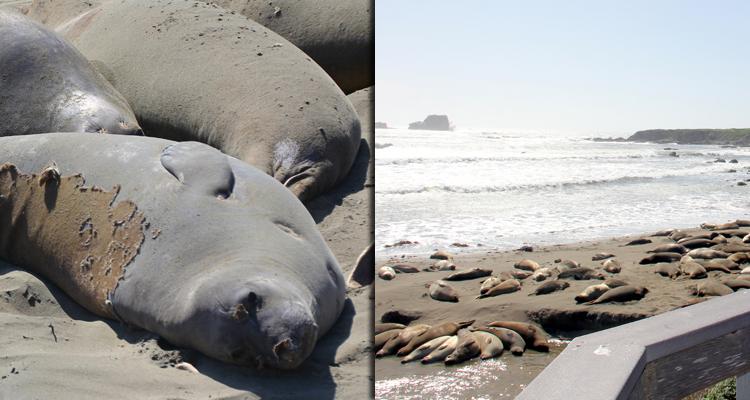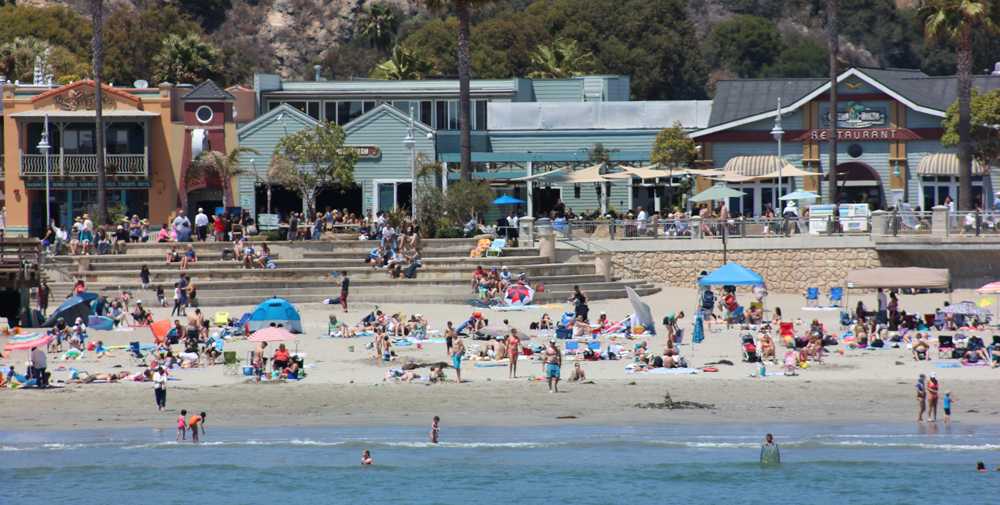Estella Vazquez, an enrollment success specialist, assists a Cuesta student in the Transfer Center.
Photo by Clara Applegarth / Cuesta Student
By Clara Applegarth
Special Contributor
Journalism 204
Tijuana, 1986. Her mother was approached by two men as eight siblings hung off her arms. One of the men looked at her and said: “Are you trying to cross the border? We can get you there.â€
The shrill noises of street cars and the border patrol — only a few yards ahead — clouded her judgement.
The mother wondered: Does she decide to go back to the civil wars? To a town with no jobs? Back to gangs that turn the streets where her children play into a war zone?
No, she couldn’t take it any more. She decided to take a risk.
Estella Vazquez’s mother told the men “yes,†that she and her children needed a ride and they got into the car. When they were released, they were corralled like cattle into a large warehouse, where 30 people crammed onto one large mattress.
“She [Vazquez’s mother] would miss my dad so much, that she get his clothes and smell them, just to feel that he was close,†Vazquez said as tears streamed down her face.
Vazquez’s family’s journey is one of hundred’s of thousand’s of immigrants. Migrating at the young age of 14, she did not see herself being where she is today.
“…for immigrant families, you miss everything you left behind.â€
-Estella Vazquez, Enrollment Success Specialist
Vazquez is now the enrollment success specialist at Cuesta College, president of Cuesta’s chapter of the Latina Leadership Network, and a crucial member of The Dreamers Club that gives aid to hundreds of undocumented students here at Cuesta and high schools throughout the county.
All these titles boil down to one goal for Vazquez: To provide hope to undocumented students, and to make sure they know they can get an education, better paying jobs, and achieve their dreams.
Since the Trump administration announced in September that it would rescind DACA, undocumented Cuesta students have been fearful that they could be deported.
In response, Vazquez helped to coordinate a forum at Cuesta to provide undocumented students with support and information. Even so, students remain anxious because of the uncertainty of not knowing what Congress will decide to do in March — the deadline imposed by the administration to develop an alternative to DACA.
This makes Vazquez’s role at Cuesta and in the area high schools so essential at this time of panic and concern. The uncertainty of DACA has been far reaching. It’s estimated Cuesta has about 570 undocumented students. There are about 9,000 total in the county; 72,300 in the state.
“She’s an angel,†said Bonnie Gordon, one of Vazquez’s colleagues in the counseling department. “She was sent here to help more students who are afraid. She has the passion.â€
One foot is in a land of “opportunity,†where the word is translated as discrimination and exploitation seems like a double edged sword to immigrants. The other foot is in their culture and homeland that is embedded with crime and poverty.
“The funny thing is, for immigrant families, you miss everything you left behind,†Vazquez said. “You miss your culture. You miss your other family that you left behind, your friends.â€
Vazquez has always had a palpable passion for education. She dropped out of high school to start working so she could help sustain her large family of 14, living in a small one-bedroom house in Los Angeles. But her passion for education always remained.
Yet there was a fire in Vazquez that all her employers in America saw. Soon after she would start a job, she would be promoted, from hosting to waitressing, from a single seamstress to managing the entire floor of the factory. And that is how she got her position at Cuesta as well.
After finding out that the sewing factory she had been working for in the Central Coast was shutting down, she decided that she wanted to get more involved in her community, to help others, and find opportunities in education.
She found an ad SLO County had posted requesting local Latinos to participate in a survey on where they would see the city in 10 years. The event was held at Cuesta College.
Vazquez showed up and made herself known right off the bat. The group, then called “Living In America,†recruited Vazquez to go to schools, markets and parks to find Latinos to provide feedback about their community.
Soon after, she was asked to be on a panel to help hire an English as a Second Language Director to recruit potential Latino students. Vazquez was given the position after finding that she was the most suitable candidate.
Today, Vazquez works at every Cuesta campus, and goes to all the high schools in the county to help with the admission process, which is arduous and long for undocumented students.
But the bottom line remains: she is a beacon of light who has helped hundreds of students to get back into school, receive financial aid and graduate. Not only that, but she is committed to it and can empathize with these current or future students.
“All immigrants, all we want is a better life,†Vazquez said. “You just want to provide a better future for your children for your family, for those that are back behind, some days, they don’t even have food.
“And it really bothers me to know that there are so many people that don’t understand a simple concept like that,†she said. “So all immigrants come here because they need to survive.â€

